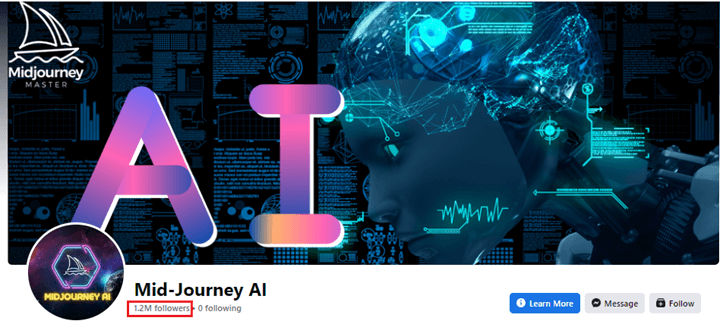Cybercriminals are working hard to lure the 3 billion Facebook users worldwide into downloading malware by creating fake pages and ads for popular AI brands: ChatGPT, Google Bard, Midjourney and Jasper. Many of these fake pages have tens of thousands of followers, with a mix of real content and malware.
Here's how it works:
Cyber criminals are using Facebook to impersonate popular AI brands such as ChatGPT, Google Bard, Midjourney and Jasper. Facebook users are tricked into downloading content from fake brand pages and ads.
These files contain malicious malware, which steals online passwords (banking, social media, etc.), crypto wallets, and any information which is stored in program browsing them.
Unsuspecting users like and comment on fake posts, thereby spreading them to their own social networks.
According to Sergey Shykevich, Threat Intelligence Group Manager at Check Point Research:
Cybercriminals are getting smarter. They know everyone is interested in generative AI and use Facebook pages and ads to impersonate ChatGPT, Google Bard, Midjourney, and Jasper. Unfortunately, thousands of people fall victim to this scam. They interact with the fake pages, which promotes their spread - and even install malware disguised as free AI tools. We urge everyone to be vigilant and ensure that they only download files from authentic and trusted websites.
More details and photographic material can be found at blog of the company.





